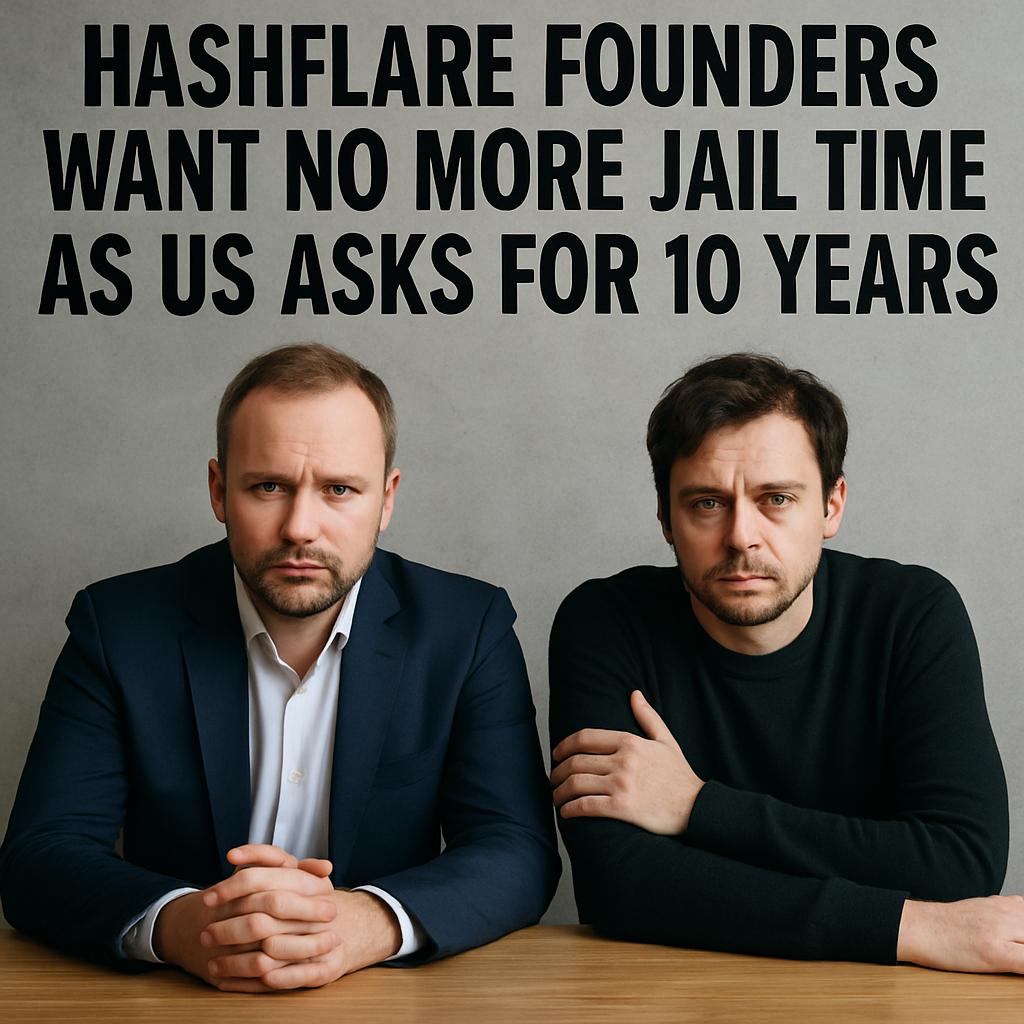HashFlare Founders Want No More Jail Time as US Asks for 10 Years
In a Seattle Federal Court filing, prosecutors argued for a decade-long sentence for HashFlare co-founders who pleaded guilty to conspiracy to commit wire fraud. The case, described as the largest fraud tried by the court, involved $577 million in mining contracts and $300 million in victim losses. Defendants request credit for 16 months served in Estonian custody.
Attorneys contended contract payouts exceeded initial investments, citing $2.3 billion in withdrawals by 390,000 customers. Prosecutors discounted this claim, characterizing the scheme’s scale and investor deception as warranting maximum deterrence. Judge Robert Lasnik will consider sentencing on August 14.
Key arguments from the defense highlight cooperation and repayment mechanisms, while prosecution emphasized the Ponzi structure and lavish lifestyles financed by new investor funds. Victim impact statements detail financial harm across 440,000 participants, underscoring the scheme’s breadth.
Legal analysts note the case’s implications for cross-border enforcement and sentencing guidelines in crypto fraud. The Department of Homeland Security’s deportation directive adds procedural complexity, as founders debate jurisdiction and future residence status. Industry observers view this trial as a precedent for prosecuting large-scale digital asset scams.

Comments (0)